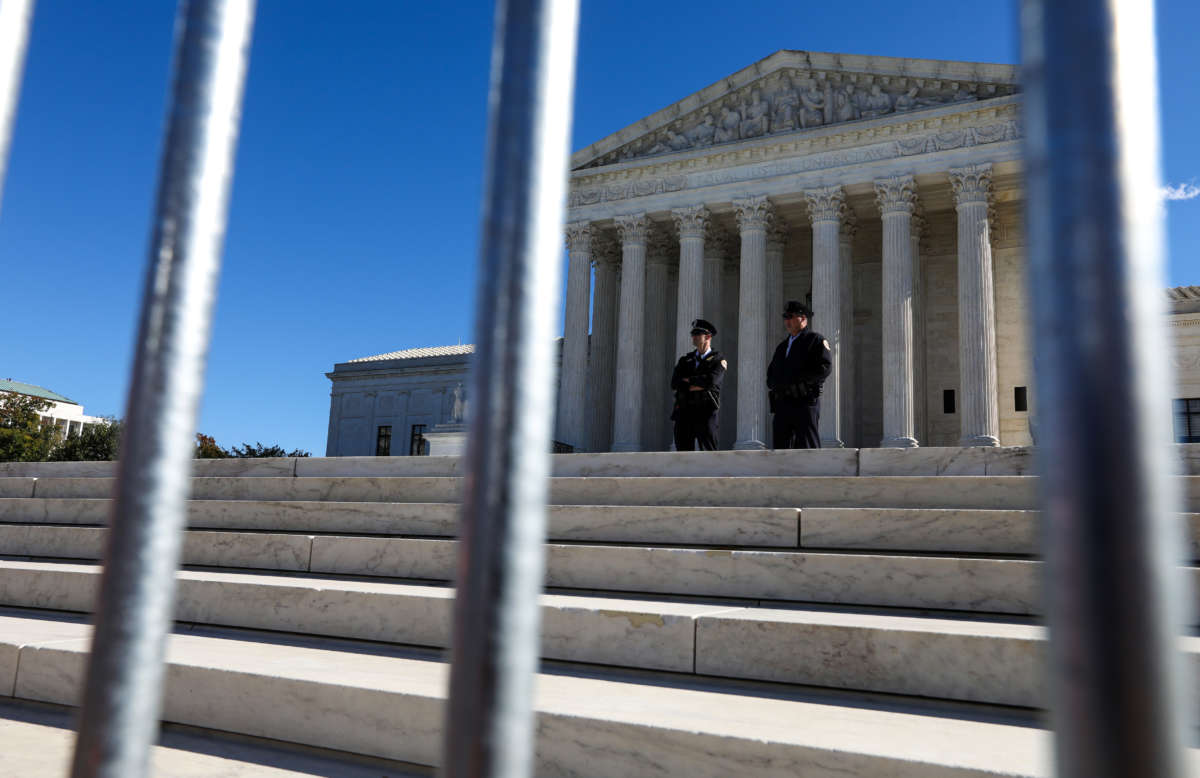Support justice-driven, accurate and transparent news — make a quick donation to Truthout today!
A commission established by President Joe Biden earlier this year to evaluate proposals to reform the United States Supreme Court will be delayed by a month, according to a source with knowledge of its planning.
The 36-member commission, which was created by Biden through an executive order in April, fulfills a campaign pledge the president made in 2020. Though the commission was due to release its final report on proposals for reforms to the High Court in November, a source who spoke to CNN said that the report will be delayed in order to schedule another meeting later this month, and to have “a little more time to work through this important substance.”
A fifth public meeting on the proposed reforms will take place on November 19. Draft reports of the commission’s findings will be issued in early December, with its final report submitted to the president on December 15.
The commission will explore a number of proposed changes to the court. The potential reforms include expanding the Supreme Court’s size, as well as instituting tenure limits for justices, effectively ending lifetime appointments to the nation’s highest judicial authority.
Although its final assessment isn’t supposed to give any concrete recommendations, a draft report from the commission last month seemed to indicate support for the idea of limiting the amount of time justices can serve. However, the commission appeared reluctant to back the idea of expanding the court’s size, saying that doing so would reduce the court’s legitimacy.
It appears that the Supreme Court is doing that just fine on its own. According to a Quinnipiac University poll conducted in September, the court’s approval rating sank to a dismal 37 percent shortly after it refused to place a stay on a Texas abortion law that banned the medical procedure after six weeks of pregnancy. That approval rating is the lowest the court has ever received in the 17 years that Quinnipiac University has polled the question.
Overall, Americans seem open to reforming the court. A Marquette University Law School poll from September found that 72 percent of respondents liked the idea of placing tenure limits on justices. Voters were split when it came to expanding the court’s size, with 48 percent saying they wanted the court to be expanded and 52 percent saying they didn’t.
Holding Trump accountable for his illegal war on Iran
The devastating American and Israeli attacks have killed hundreds of Iranians, and the death toll continues to rise.
As independent media, what we do next matters a lot. It’s up to us to report the truth, demand accountability, and reckon with the consequences of U.S. militarism at this cataclysmic historical moment.
Trump may be an authoritarian, but he is not entirely invulnerable, nor are the elected officials who have given him pass after pass. We cannot let him believe for a second longer that he can get away with something this wildly illegal or recklessly dangerous without accountability.
We ask for your support as we carry out our media resistance to unchecked militarism. Please make a tax-deductible one-time or monthly donation to Truthout.
